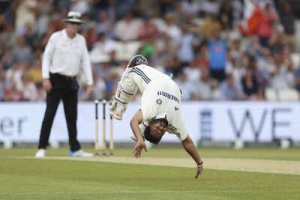Heart health may be compromised by sensory impairments such as hearing loss and vision problems. Emerging evidence highlights a strong connection between these sensory deficits and an increased risk of cardiovascular diseases, including heart attacks, strokes, and heart failure, particularly in middle-aged and older adults, as cited in an American Heart Association study. Individuals with hearing or vision loss may be more vulnerable to serious heart-related conditions compared with those with normal sensory function. As the global population continues to age, understanding this link is critical for public health and preventive strategies. Early detection of sensory impairments and timely interventions, such as hearing aids or corrective lenses, could play a key role in reducing cardiovascular risks and improving overall health outcomes for aging adults.
Monitoring hearing and vision is crucial for heart health; here’s why
Sensory impairments, such as hearing and vision loss, are prevalent worldwide, particularly among older adults. According to the Centers for Disease Control and Prevention (CDC):
- Approximately 13% of children and adults in the U.S. are visually impaired.
- Around 15% of adults experience some level of hearing difficulty, even with hearing aids.
- By age 71, over one-quarter of adults are visually impaired, and 55% of those aged 75 and older have disabling hearing loss.
These statistics underscore the importance of monitoring sensory health as part of a comprehensive approach to preventing cardiovascular disease.
Key findings highlighting hearing and vision loss linked to heart failure
A recent study published in the Journal of the American Heart Association analyzed 11,332 Chinese adults aged 45 and older with no prior history of cardiovascular disease. Participants provided self-reported data on their hearing and vision in 2011 and were followed for seven years. Key outcomes included:
- 2,156 participants developed cardiovascular conditions such as stroke, heart attack, chest pains, arrhythmias, or heart failure.
- Individuals with only vision problems had a 24% higher risk of cardiovascular disease.
- Those with only hearing loss had a 20% increased risk.
- Participants with both hearing and vision impairments faced a 35% higher likelihood of developing cardiovascular disease.
This research is notable for comparing the effects of hearing loss, vision loss, and dual sensory impairment on cardiovascular outcomes, whereas prior studies focused more on cognitive decline or quality of life.
Potential mechanisms linking sensory loss and heart disease
While the exact mechanisms are not fully understood, researchers suggest several contributing factors:
- Reduced physical activity
Adults with vision loss may find exercise challenging, increasing risks of obesity, high blood pressure, and other cardiovascular risk factors.
- Cognitive and mental health impacts
Hearing loss can affect communication and cognition, potentially leading to anxiety, depression, and social isolation—all factors associated with heart disease.
- Combined sensory impairment
Those with both hearing and vision loss face compounded challenges, potentially amplifying cardiovascular risk.
Dr. Xiaowei Zheng, senior author and researcher at Jiangnan University Wuxi School of Medicine, emphasized the importance of identifying and managing sensory deficits as populations continue to age.
Vision and hearing decline globally: The need for preventive strategies
Sensory loss is a growing global health issue:
- By 2050, an estimated 895 million people will experience vision impairment, according to the Lancet Global Health Commission on Global Eye Health.
- The World Health Organization projects 2.5 billion people will have some degree of hearing loss by 2050.
- These projections highlight the urgency of integrating sensory screening and treatment into public health strategies, particularly to prevent cardiovascular complications.
Understanding the connection between sensory loss and cardiovascular disease
Dr. Zheng noted that further studies are required to determine whether interventions, such as glasses or hearing aids, can reduce cardiovascular risk. Current evidence shows only an association, not causation, between sensory loss and heart disease.
Dr. Rebecca Boxer, chief of geriatrics at UC Davis Health, reinforced that while sensory deficits are often overlooked, they significantly impact quality of life and daily functioning. She stressed the importance of rigorous research to clarify underlying causes, including:
- The role of physical inactivity
- Adherence to medications for chronic conditions such as diabetes
- More reliable data collection beyond self-reporting
How early detection of sensory deficits can protect heart and stroke health
Given the evidence, screening for sensory deficits in adults, particularly those over 45, could serve as an early warning system for cardiovascular risks. Recommended strategies include:
- Routine vision and hearing tests
- Early intervention with eyeglasses or hearing aids
- Encouraging physical activity and social engagement
- Integrating sensory health into cardiovascular risk assessments
By addressing both sensory and cardiovascular health, healthcare providers can better reduce the likelihood of heart disease and stroke in aging populations.
Disclaimer:This article is for informational and educational purposes only and is based on research cited from the American Heart Association. It is not a substitute for professional medical advice, diagnosis, or treatment. Always consult a qualified healthcare provider regarding any concerns about hearing, vision, or cardiovascular health.Also Read | Kidney damage symptoms: 5 morning signs your body may be silently warning you about



 Greg Chappell: Rishabh Pant is Revolutionizing Cricket with Unorthodox Style
Greg Chappell: Rishabh Pant is Revolutionizing Cricket with Unorthodox Style
 Najmul Hossain Resigns as Bangladesh Test Captain After Sri Lanka Defeat
Najmul Hossain Resigns as Bangladesh Test Captain After Sri Lanka Defeat
 Earth's Mantle Unleashes Volcanic Fury, Carving New Ocean in Africa
Earth's Mantle Unleashes Volcanic Fury, Carving New Ocean in Africa
 Smith Targets Test Return After Baseball Cage Rehab in New York
Smith Targets Test Return After Baseball Cage Rehab in New York
 Rishabh Pant's Somersault Celebration Draws "Unnecessary" Remark From Doctor Who Aided Recovery
Rishabh Pant's Somersault Celebration Draws "Unnecessary" Remark From Doctor Who Aided Recovery
 Shimron Hetmyer's Last-Gasp Six Stuns MI New York, Seals Record MLC Chase for Seattle Orcas
Shimron Hetmyer's Last-Gasp Six Stuns MI New York, Seals Record MLC Chase for Seattle Orcas
 Oral Cancer: Spotting the Signs, Understanding the Risks, and Why Early Detection is Key
Oral Cancer: Spotting the Signs, Understanding the Risks, and Why Early Detection is Key
 Is Daily Bowel Movement Necessary? When Irregularity Signals a Health Issue
Is Daily Bowel Movement Necessary? When Irregularity Signals a Health Issue
 Asia Cup 2025: ACC Reportedly Targets September Start Amid Rising Hopes, Aims for Schedule Release Next Month
Asia Cup 2025: ACC Reportedly Targets September Start Amid Rising Hopes, Aims for Schedule Release Next Month
 India's First Dengue Vaccine Nears Finish Line: Phase 3 Trials Show Promise
India's First Dengue Vaccine Nears Finish Line: Phase 3 Trials Show Promise